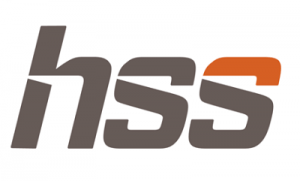
By Tammy A. Mullin, chief marketing officer at NextJob, an MHA Endorsed Business Partner
 All the talk these days is about “The Great Resignation.” The healthcare industry has lost anywhere from 20% to 30% of its workforce over 2020 and 2021, with more than a third of employees considering leaving their current positions and 60% currently rethinking their career. The sector ranks third in industries experiencing significant labor shortages at 9%, beat out by only accommodations and food services and leisure and hospitality. MHA members are scrambling to fill positions as well as keep existing employees engaged.
All the talk these days is about “The Great Resignation.” The healthcare industry has lost anywhere from 20% to 30% of its workforce over 2020 and 2021, with more than a third of employees considering leaving their current positions and 60% currently rethinking their career. The sector ranks third in industries experiencing significant labor shortages at 9%, beat out by only accommodations and food services and leisure and hospitality. MHA members are scrambling to fill positions as well as keep existing employees engaged.
While most employers are focused on higher pay and enhanced benefits as a top strategy to attract and retain talent, it turns out that’s not what drives employee satisfaction and engagement. A 2021 study from Indeed, The Work Happiness Report, revealed some interesting data regarding what matters most to employees. Pay ranks 12th on the list of what makes people happy at work.
The top drivers of workplace happiness — feeling energized, a sense of belonging and a sense of purpose — are well within the reach of organizations whose existence is generally tied to a clear mission. The key is in providing clarity on the organization’s vision, mission, impact and employees’ contributions to each, as well as helping workers navigate their relationships with coworkers and into roles they love and where they will thrive.
To help its customers better engage with coworkers and build a better sense of belonging, MHA Endorsed Business Partner NextJob is hosting a webinar on “Workplace Communication Skills” at noon ET July 18. MHA members are invited to register and share information about the webinar with their employee base. In addition, an on-demand recording and presentation slides are available to MHA members free of charge from a webinar on The Great Resignation and Strategies to Maintain Workforce that NextJob presented May 11.
NextJob is available to answer questions and further explore MHA members’ interest in its career development services to help engage and retain employees during these difficult times.
MHA members not only receive discounted pricing on NextJob services; for a limited time, members will also receive their first career development or outplacement package free of charge.
To learn more, contact Paul Dzurec, senior account executive, NextJob, at (860) 933-8424. For more information about the EBP program, visit the program’s webpage.

